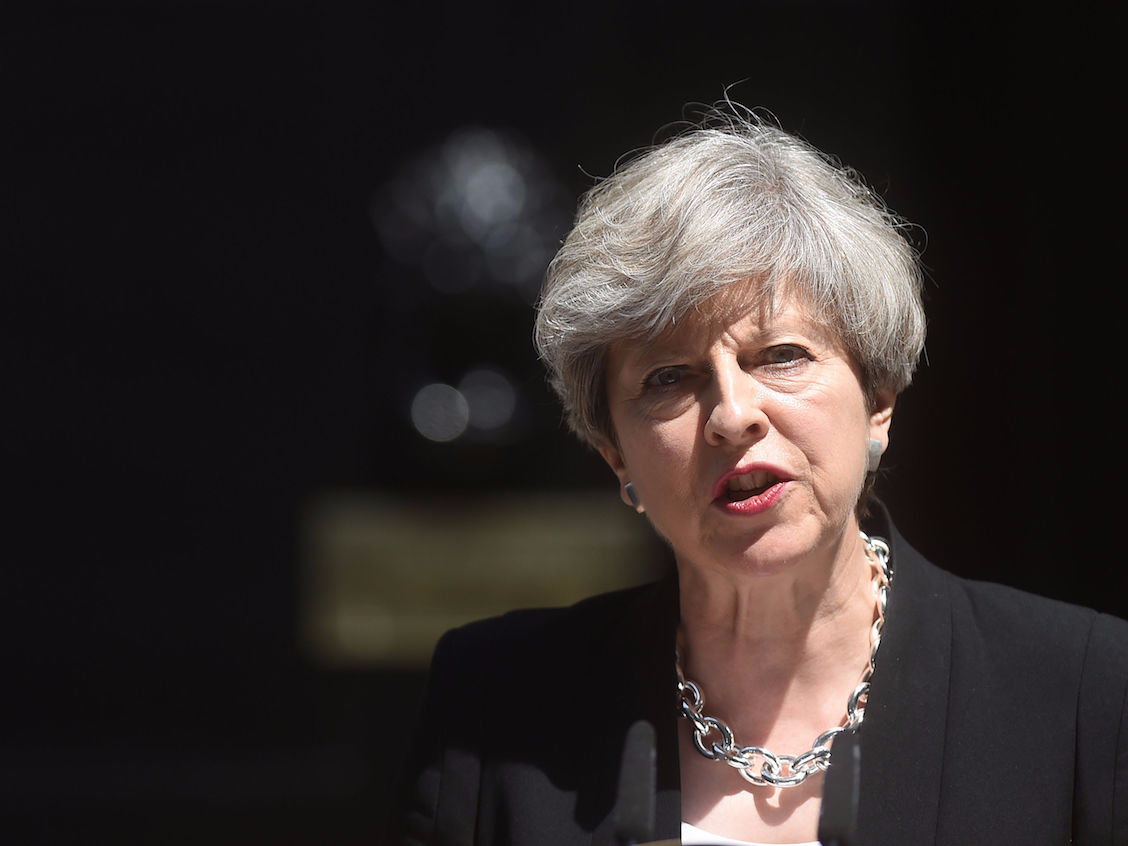Theresa May has ordered a “major national investigation” into the use of cladding on buildings in the UK in the wake of the Grenfell Tower fire tragedy.
The prime minister called for the probe after every single one of the 95 buildings tested since the west London tower block blaze failed to meet the required standard.
May announced the plan in a meeting of cabinet ministers on Tuesday morning. Government officials are yet to flesh out the scope of the investigation and where it will be focused.
Labour called on the government to speed up the testing process and provide proper funding to fix problems as soon as they are found.
Ninety-five buildings under the authority of 32 different UK councils failed lab tests. These check whether the cladding material surrounding them could catch fire in a similar way to the material used on Grenfell Tower.
Tests so far have focused on residential high-rise buildings, though similar cladding is used on commercial properties as well.
Some tower blocks - including five in north London - have been evacuated after firefighters identified safety failings, including dangerous cladding.

The new investigation is in addition to a formal public inquiry into the Grenfell disaster itself, which was announced the day after the fire.
The west London high-rise caught light in the early hours of June 14. The official death toll currently stands at 79, though this is expected to rise.
Local residents have said the total strikes them as suspiciously low - a concern echoed on Monday night by Labour MP David Lammy, who suggested information could have been held back to prevent a riot.
In response to May's announcement, John Healey, Labour's shadow housing minister, said: "The Prime Minister promised that 100 tests a day could be done but two weeks on from the Grenfell Tower fire only 95 have been completed.
"Ministers must also not outsource all responsibility for urgent remedial action to councils and housing associations. They must guarantee that where fire risks are found they will make available upfront funding, including for re-cladding buildings, fire prevention work and retro-fitting sprinkler systems, starting with the highest-risk blocks."

